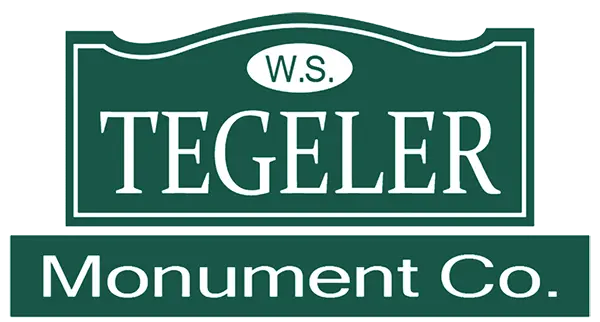When planning a burial or visiting the resting place of a loved one, you might hear the terms graveyard, churchyard, and cemetery used interchangeably. While they’re all places where the deceased are laid to rest, each term has a distinct meaning rooted in history, location, and cultural tradition. Understanding the difference between these types of burial grounds can help you make more informed decisions and better honor the preferences and traditions of your loved one.
What Is a Graveyard?
A graveyard is a burial ground that is adjacent to a church, traditionally belonging to and maintained by the church itself. Graveyards are often small and historic, dating back centuries, especially in rural parts of Maryland, Pennsylvania, and Virginia.
Key characteristics:
- Located next to or behind a church building
- May be limited to members of that specific religious congregation
- Usually smaller in size than modern cemeteries
- Often feature older, weathered headstones with unique historic styles
Graveyards are commonly found in older communities where the church and burial site were integral parts of daily life. They may have burial plots dating back to the 18th or 19th centuries and are often rich with local heritage.
What Is a Churchyard?
The term churchyard refers to the entire area surrounding a church, not just the burial ground. This can include not only the graveyard, but also walkways, gardens, and open spaces used for community events or religious gatherings.
Distinction:
- A churchyard is the full property or grounds surrounding a church
- A graveyard is the burial section within that churchyard
In everyday language, the two terms are often used interchangeably, but technically, the graveyard is just one part of the churchyard.
In the context of funeral planning, understanding this difference matters especially when churches permit cremated remains to be scattered or interred in parts of the churchyard not designated as a formal graveyard.
What Is a Cemetery?
A cemetery is a burial ground that is not affiliated with a church, and is typically larger, more modern, and commercially operated. Cemeteries serve a broader public, offering plots for sale regardless of religious background.
Common features of modern cemeteries:
- Open to the public, regardless of faith or denomination
- May include memorial gardens, mausoleums, cremation niches, and columbaria
- Often provide services like perpetual care, chapel space, and landscaping
- Operated by private companies, municipalities, or nonprofit organizations
- Accommodate a wider range of custom headstones, markers, and memorial types
Cemeteries offer more flexibility in terms of personalization and space, which is why many families today choose them when planning burials or placing custom monuments or grave markers.
Graveyard vs. Cemetery: What’s the Main Difference?
The core difference is location and affiliation:
| Feature | Graveyard | Cemetery |
| Location | Attached to a church | Standalone, public or private |
| Religious affiliation | Typically religious (Christian) | Usually non-denominational |
| Size | Smaller, older | Larger, more expansive |
| Accessibility | May be restricted to church members | Open to the general public |
| Burial options | Traditional, often limited | More modern, flexible options |
Why These Terms Still Matter Today
While the terminology may seem outdated to some, it still plays a role in funeral planning, burial plot selection, and local regulations. Some families may choose a church-affiliated graveyard due to religious beliefs or family traditions, while others prefer the customization and accessibility of a modern cemetery.
Understanding these distinctions can also help when:
- Researching family ancestry or visiting historical burial sites
- Choosing a burial location that fits your family’s spiritual or cultural values
- Designing a custom monument or headstone that meets the site’s guidelines
Headstone and Monument Regulations by Burial Type
One of the most important, but often overlooked, differences between graveyards, churchyards, and cemeteries lies in their rules for monuments, markers, and custom memorials. These regulations can significantly impact your ability to personalize your loved one’s resting place.
Graveyard & Churchyard Restrictions:
- Tend to be more traditional in style and size
- May require upright headstones only, especially in historic or religious settings
- Materials like granite are typically accepted, but modern or artistic designs may be limited
- Some older graveyards do not allow new burials, or only allow them for church members or family plots
Cemetery Flexibility:
- Cemeteries—especially modern, non-denominational ones—generally allow a wider variety of memorial styles
- Options may include flat markers, upright headstones, benches, slant markers, or companion memorials
- More likely to permit custom shapes, imagery, and inscriptions
- Rules still vary by section, so it’s important to consult with cemetery management before purchasing or designing a stone
Choosing the Right Resting Place for Your Loved One
Each type of burial ground has its own atmosphere, rules, and limitations. Before selecting a plot, consider:
- Religious or cultural preferences
- Proximity to family and future visitors
- Regulations for headstone size and material
- Space availability and cost
- Long-term care and maintenance services
At Tegeler Monument Company, we frequently work with cemeteries, churchyards, and even private properties throughout Maryland, Washington D.C., Virginia, and Pennsylvania, and can help guide families through what’s allowed in each space when it comes to headstones, markers, and custom memorials.
Final Thoughts
Whether your loved one is laid to rest in a historic graveyard behind a small-town church or in a modern cemetery surrounded by nature, what matters most is how the space reflects their life, legacy, and values.
By understanding the difference between graveyards, churchyards, and cemeteries, you can make more informed decisions, not only about where your loved one will rest, but how you’ll remember them through the space and the monument you create.
Contact Tegeler Monument Company
Need help understanding burial site requirements or designing a custom memorial? We’re here to support you.
Serving Maryland, D.C., Virginia, and Pennsylvania
Contact us to speak with our compassionate team about choosing the right monument for any type of burial ground.


Comments are closed